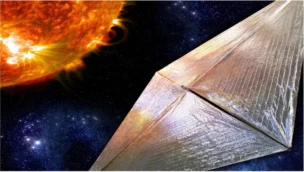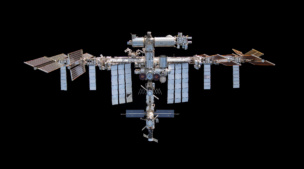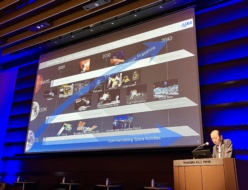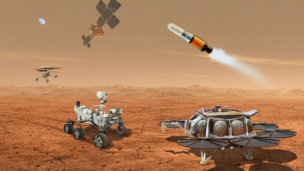What keeps NASA’s chief economist up at night? Figuring out how to send consistent demand signals to industry in a constrained budget environment.
There’s a lot on the space agency’s aspirational to-do list, and it will need industry’s help to get there, but NASA’s budget is expected to stay flat at best under the budget deal lawmakers reached last year.
“Based on growth trajectories for public appropriations, we may not be able to forward all the demand signals that we want,” Alexander MacDonald said Thursday at a Space Foundation event in DC. “How do we coordinate demand signals from different parts of the federal government in a way that’s consistent for long enough to give industry a chance to develop new capabilities?”
Other challenges: MacDonald also said that while the global space economy is on the rise, the domestic space economy is actually shrinking, according to data from the Bureau of Economic Analysis that accounts for inflation. That’s because the satellite comms and TV markets are shrinking faster than satellite internet can grow.
“That’s one of the big questions of the future of the US space economy…how much economic share of total global telecom revenues can satellite LEO constellations get, and how much can US companies get?” he said.
Other panelists raised concerns about an overly optimistic view of the future within the space community.
“It’s all too easy, especially when we’re only talking to folks in this room, to see the trajectory of the space economy…and say that our boldest, craziest visions of what the space economy can do will come true,” said Brendan Rosseau, a teaching fellow at Harvard Business School. “We do really have a long and hard road ahead.”
Ending on a high note: There’s no shortage of things to be excited about, however. Panelists had a laundry list of space highlights they’re watching for 2024, including the future of Starship, European launch, DARPA’s LunA-10 project, the return to the Moon, and the Europa Clipper launch.




